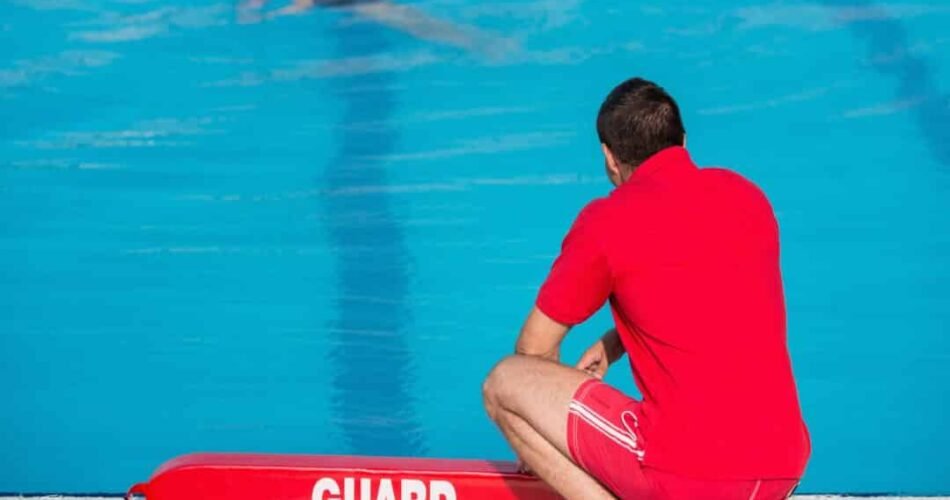Lifeguarding is a critical profession that demands skill, physical endurance, and the ability to respond quickly in life-threatening situations. Lifeguard training ensures that individuals are well-prepared to handle emergencies efficiently. From mastering water rescue techniques to administering first aid and CPR, lifeguard training is a comprehensive program that saves lives and opens up numerous career opportunities.
The Importance of Lifeguard Training
Becoming a certified lifeguard is not just about standing watch over swimmers; it involves rigorous training to prevent accidents and respond swiftly in crisis situations. Here’s how lifeguard training prepares you:
1. Water Rescue Techniques
Lifeguard training teaches a variety of rescue techniques to ensure safe and efficient rescues. These include:
- Passive Victim Rescue: Retrieving an unconscious swimmer without causing harm.
- Active Victim Rescue: Approaching and assisting a struggling swimmer.
- Spinal Injury Management: Stabilizing a victim with a suspected spinal injury in the water.
- Rescue Tube Use: Utilizing a flotation device for added safety during rescues.
2. CPR and First Aid Certification
Lifeguard training includes Cardiopulmonary Resuscitation (CPR) and first aid certification. You will learn:
- CPR for adults, children, and infants.
- Using an Automated External Defibrillator (AED).
- Treating wounds, fractures, and burns.
- Handling heat exhaustion and dehydration cases.
3. Emergency Action Planning
Lifeguards are trained to assess situations quickly and implement emergency action plans (EAPs). This includes:
- Recognizing drowning behaviors.
- Coordinating emergency evacuations.
- Communicating effectively with EMS personnel.
4. Surveillance and Prevention
A large part of lifeguard training is preventing emergencies before they happen. This involves:
- Scanning techniques to monitor multiple swimmers at once.
- Recognizing hazardous conditions like rip currents or unsafe diving areas.
- Enforcing pool and beach rules to maintain safety.
Benefits of Lifeguard Training
1. Life-Saving Skills
The primary benefit of lifeguard training in florida is that it equips individuals with life-saving techniques that can be used in a wide range of emergencies.
2. Physical Fitness and Endurance
Lifeguard training requires strong swimming skills and stamina, ensuring that you remain fit and capable of handling strenuous rescue situations.
3. Leadership and Responsibility
Lifeguards are responsible for the safety of multiple people, which enhances decision-making skills and fosters leadership qualities.
4. Job Security and Career Growth
Lifeguards are in high demand at pools, beaches, water parks, and resorts. Once certified, job opportunities are plentiful, offering flexible work schedules and competitive pay.
How to Get Certified as a Lifeguard
1. Meet the Basic Requirements
To enroll in a lifeguard training course, candidates typically need to:
- Be at least 15 years old.
- Pass a swimming skills test.
- Demonstrate basic endurance and water safety knowledge.
2. Enroll in an Accredited Lifeguard Training Program
Organizations like the American Lifeguard Association (ALA) offer top-tier lifeguard training programs that meet national safety standards.
3. Complete the Training Course
Lifeguard training programs include:
- Classroom instruction on water safety protocols.
- Hands-on rescue training and CPR practice.
- Final written and practical exams to assess knowledge and skills.
4. Obtain Your Certification
Upon successfully completing the course, you receive an official lifeguard certification, which is valid for two years.
Job Opportunities After Lifeguard Certification
1. Public and Private Pools
Lifeguards are essential at community pools, fitness centers, and private clubs.
2. Beaches and Open Water Rescue
Many certified lifeguards find seasonal and full-time work at beaches, lakes, and waterfront parks.
3. Water Parks and Resorts
Major water parks and resorts employ lifeguards to ensure guest safety and prevent accidents.
4. Cruise Ships
Lifeguards on luxury cruise ships oversee pools and water activities while traveling the world.
5. Lifeguard Instructor
After gaining experience, you can become a certified lifeguard instructor, training future lifeguards.
Make Lifeguarding Your Dream Job
Lifeguarding is more than just a summer job; it’s a rewarding career that teaches invaluable skills and offers diverse opportunities. Whether working at a pool, beach, or resort, certified lifeguards enjoy job stability, leadership opportunities, and the chance to save lives.
If you’re looking for a high-impact career that combines fitness, responsibility, and the ability to make a real difference, lifeguarding is the perfect choice.
